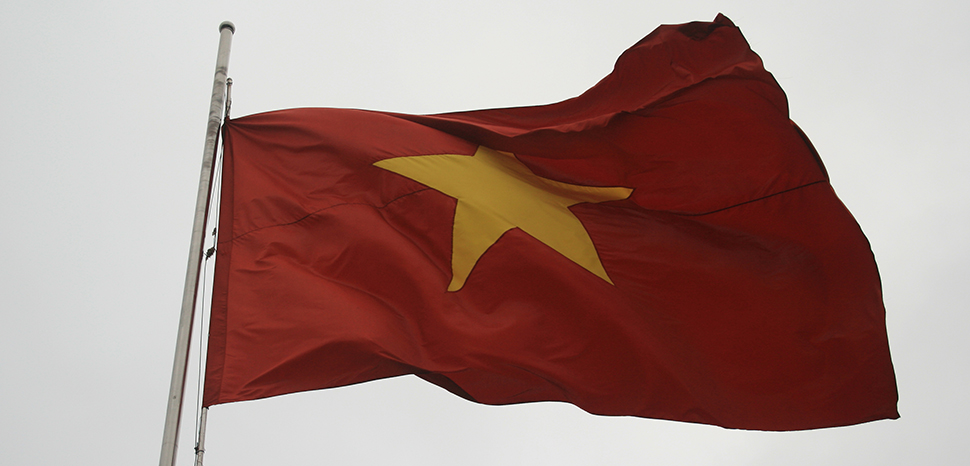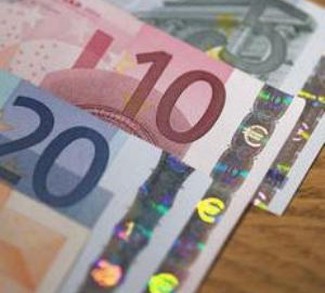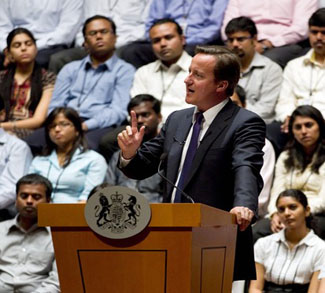Last year’s historic signing of the Comprehensive Strategic Partnership between Hanoi and Washington served to underscore the common interests between two former enemies in an increasingly fractured world. The elevated relationship calls for a deepening of not only diplomatic relations but translates as an opportunity for Washington to upgrade Vietnam’s recognition as a market economy.
The stakes are high for Vietnam. They must convince the Biden administration that they have taken the necessary steps to make strides in market-based reforms, especially in modernizing and enhancing the transparency of its monetary policy and exchange rate management framework.
With the burgeoning trade flows between the two countries and the White House’s push for the establishment of partnership agreement on the Indo-Pacific Economic Framework for Prosperity (IPEF), market status recognition would help Vietnam expand its trade and investment with the United States. Washington is presently Vietnam’s second-largest trading partner behind China and its largest export marker, with bilateral trade in 2022 valued at almost $139 billion.
The bilateral benefits for US companies derived from recognition of Vietnam as a market economy include market access and export opportunities, namely in agriculture, machinery, aircraft, and pharmaceutical products, all of which contribute to the development of a supply chain that suits America’s interests.
Over the past decade, Vietnam has emerged as a major manufacturing center, and remains a major source for consumer electronics, furniture, semiconductor and other components, apparel, and footwear imports.
Market-status recognition would also contribute to a reduction in trade barriers, making it easier and cheaper for US businesses to export goods and services to Vietnam.
With the ongoing trade tensions between the US and China, recognition of Vietnam as a market economy could further incentivize US companies to diversity their supply chains away from China and towards Vietnam. Additionally, lower import prices and improved market access could enable US companies to increase their output and production in Vietnam. This offers the potential to generate increased sales revenues and profitability for American companies operating in Vietnam
The US-ASEAN Business Council (USABC) plans to send a record-breaking number of US businesses to Vietnam later this month, surpassing last year’s delegation of 52 firms. This signals the expanding interest of US businesses in Vietnam.
Telecommunications, information technology, power generation, transportation infrastructure construction, environmental project management, and technology will continue to offer promising opportunities for US companies.
“The U.S. should grant Vietnam market economy status, especially after the two countries agreed during Biden’s visit in September to establish a comprehensive strategic partnership. Other countries that have a non-market economy status are mainly ones which the U.S. has confrontational or strained relations, such as China and Russia,” claims Murray Hiebert, Head of Research at Bower Group Asia in Washington, D.C. He is quick to add, that maintaining the NME status on Vietnam is arbitrary, counterproductive, and no way to treat one of Washington’s closest partners in Southeast Asia.
Companies from Apple to Intel have already made increased investments into the country to diversity their supply chains, and along the way, spurring Vietnam’s economic expansion. There’s also increasing interest from the US Chamber of Commerce in support of Vietnam’s recognition as a market economy.
A total of 72 countries have now recognized Vietnam as a market economy, notably the United Kingdom, Canada, Australia, and Japan.
The US Department of Commerce has established six criteria that must be satisfied to grant market economy status, yet several of these criteria are mainly subjective. They include: 1) convertible currency; 2) wages are determined through free bargaining; 3) foreign investment allowed; 4) state ownership of means of production; 5) state controls over prices and output by companies; 6) other factors the U.S. deems relevant.
Vietnam more than meets all these requirements, including the fact that state ownership of companies is shrinking significantly. In 2020, Vietnam had over 660 thousand non-state enterprises, accounting for almost 96.5 % of the total number of enterprises in the country. Wages are determined by free bargaining between labor and management and the country has ratified 25 International Labor Organizations (ILO) and conventions, also joining the United Nations Convention on the Elimination of all Forms of Discrimination against Women.
Moreover, the U.S. Treasury Department has confirmed that Vietnam does not manipulate currency and in April 2021, Vietnam was formally taken off the list of countries that undervalued its currency and only included on the Monitoring List of major trading countries that merit close attention to their currency practices. They have continued to be excluded from any further placement on the Monitoring List prepared by the U.S. Treasury Department.
It has been two decades since the U.S. deemed Vietnam a non-market economy (NME) in the anti-dumping investigation against certain frozen fish fillets in 2002. Since then, the world has witnessed the once war-torn nation’s meteoric economic development and reforms. It is worth mentioning that Vietnam’s designation as a non-market economy in anti-dumping and countervailing duty investigations concluded on December 31, 2018, following the expiration of its commitment period.
Labor protection is not perfect in Vietnam but many would agree that it is not as bad as many other countries that possess market economy status.
For example, labor law mandated by the government covers Nike’s more than 530,000 factory workers. A wide range of employment facets, spanning working hours, wages, occupational safety and health, social insurance, and the rights of workers to organize and negotiate collectively, meets the protection of workers.
Incidentally, Vietnam agreed with US negotiators to adopt many labor reforms as part of its accession to the Trans-Pacific Partnerships, a trade agreement that the U.S. abandoned during the Trump presidency.
Vietnam’s diligent endeavors to foster a conducive and equitable business environment for international investors have yielded significant results. The World Bank’s “Doing Business 2020” report has placed Vietnam at the commendable rank of 70th out of 190 economies, reflecting its commitment to nurturing favorable conditions for business operations. Furthermore, U.S. News and World Report ranked Vietnam #7 among 78 countries in which to start a business in 2021, up 5 spots from a year earlier.
Vietnam’s Communist Party Chief’ Nguyen Phu Trong’s anti-graft campaign has been widely portrayed as part of the nation’s attempt to bolster its appeal for foreign investment. In 2023, it led to the forced resignations of several high-ranking officials and now is regarded as the most comprehensive anti-corruption effort in the nation’s history.
The implementation has translated as favorable outcomes for the economy, such as reducing informal business costs, streamlining bureaucratic procedures within specific sectors, and dismantling entrenched interest groups to foster a more equitable business environment.
Vietnam’s economic growth for 2024 is expected to fall within the range of 5.6% to 6%, despite uncertainties arising from geopolitical tensions and ongoing worries about recession in developed countries.
It’s now time for the U.S. Department of Commerce to recognize Vietnam’s achieved market economy status. The decision reaches beyond goodwill between two partners since there are increasing environmental, economic and security threats that both nations can better address together.
James Borton is a non-resident senior fellow at Johns Hopkins/SAIS Foreign Policy Institute and the author of Dispatches from the South China Sea: Navigating to Common Ground.
The views expressed in this article belong to the authors alone and do not necessarily reflect those of Geopoliticalmonitor.com.




